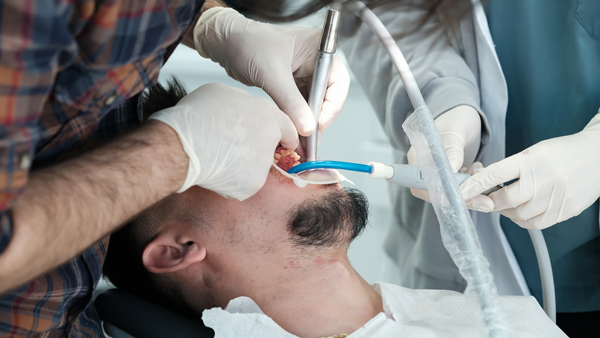Tips From an Emergency Dentist You Need to Know

Knowing how to handle common dental emergencies can help protect the health, function, and appearance of the smile. Emergency dentists often see patients who need immediate dental treatment for severe issues. These simple tips provide valuable guidance on what to do in common dental emergencies to improve oral health outcomes.
Smile-saving tips from an emergency dentist
An emergency dentist is a general or cosmetic dentist with training and availability to treat urgent dental matters. From cracked to knocked-out teeth, they can help. Here are five tips from an emergency dentist that could save a patient’s smile:
Even minor cracks can be a dental emergency
While some cracked teeth may seem minor, even small fractures can expose the inner structures of the tooth to bacteria, temperature changes, and further trauma. What may look like a cosmetic issue can quickly develop into a painful infection or require more extensive treatment, such as root canal therapy. Cracks that are deep enough to reach the pulp chamber can lead to inflammation or necrosis of the nerve, especially if left untreated. Fortunately, an emergency dentist can stabilize the tooth with dental bonding, a dental crown, or other restorative options to prevent complications.
If a toothache lasts, see a dentist
A dull, throbbing ache or sharp, shooting pain that lasts more than a day may indicate problems such as an infected pulp, a damaged filling, or deep decay. While over-the-counter medication can help alleviate pain, ignoring a toothache in the hope that it will go away on its own can actually cause it to worsen in the long term. Emergency dentists can assess the root cause of the pain and provide appropriate treatment, whether it involves removing the decay, repairing a fracture, or addressing an infection before it spreads.
Never pop an abscess on your own
A dental abscess is a pocket of pus caused by bacterial infection, typically forming at the root of a tooth or between the gum and tooth. While these infections are painful and unsightly, it is not recommended to try to drain or pop the abscess at home. Doing so can spread bacteria deeper into the tissues or even into the bloodstream, leading to serious health risks. Emergency dentists treat abscesses by addressing the source of the infection, often through drainage, antibiotics, or root canal therapy.
Do not wiggle loose permanent teeth
It can be tempting to touch, wiggle, or even attempt to reposition a loose tooth. However, this can damage the surrounding ligaments and decrease the chances of successful reattachment or stabilization. It is safer to visit an emergency dentist, who can use splinting techniques to secure a loose tooth to the neighboring teeth.
See a dentist within an hour for a knocked-out tooth
A knocked-out tooth has a strong chance of being saved if treated within 30 to 60 minutes. Handle it by the crown, rinse gently if dirty, and place it back in the socket or store it in milk or saliva before heading out to the dentist’s office. Emergency dentists can often replant the tooth and provide follow-up care, especially if treatment is quick.
Need to see an emergency dentist?
For non-life-threatening dental emergencies, reach out to an emergency dentist. At {{DBA}}, we help patients who are dealing with a range of urgent dental matters, from tooth pain to loose teeth and more. Contact our Flemington office today for more information.
Request an appointment here: https://www.sandhilldentalnj.com or call Sand Hill Dental, LLC at (908) 968-9075 for an appointment in our Flemington office.
Check out what others are saying about our dental services on Yelp: Emergency Dentist in Flemington, NJ.
Related Posts
Root canals are one of the most common dental procedures dentists perform. However, there are many different types of dentists for you to choose from, making it necessary to understand if your general dentist is able to perform specific dental services, such as a root canal. General dentists are equipped to perform a root canal. In…
Our general dentist recommends brushing with a toothpaste that contains fluoride to give your teeth the highest level of protection possible against tooth decay. Fluoride is a naturally occurring chemical that helps to re-mineralize and strengthen teeth enamel.Fluoride can be found in natural bodies of water, as well as many fruits and vegetables like grapes…
Visits to your general dentist are done routinely, which for most people is twice per year or every six months. Sometimes, your dentist may recommend a deep dental cleaning. What is that? In this article, we will review what a dental cleaning is and when you might be due for one.Just like spring cleaning in…
General dentistry is about more than keeping your teeth looking good. Oral health has a strong connection to your overall health, both affecting each other in turn because your mouth connects the outside environment to the inside of your body. As a result, practicing oral hygiene — or failing to do so — is a…
